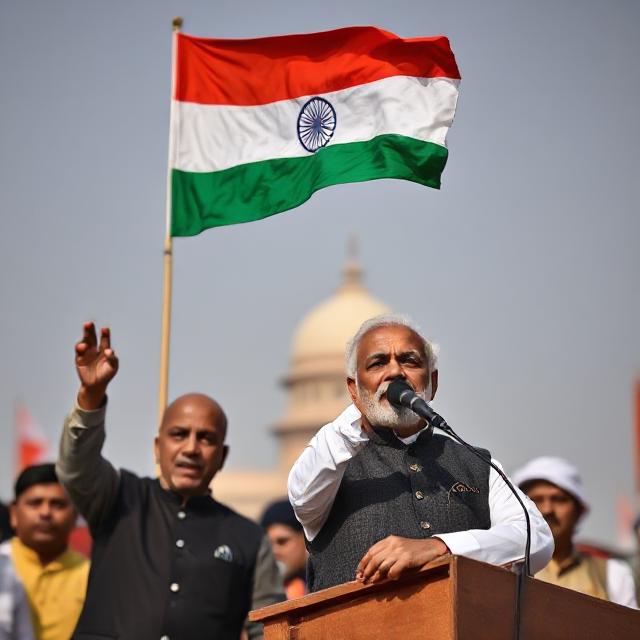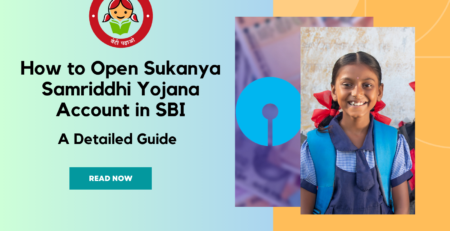Narendra Modi Creates History: 4078 Consecutive Days of Transformative Leadership
A Milestone That Redefines Indian Political History
Prime Minister Narendra Modi has reached a major milestone in Indian political history by completing 4,078 consecutive days in office on July 25, marking an unprecedented achievement that places him among India’s most enduring leaders. This historic moment represents more than just a numerical milestone—it symbolizes a decade of transformative governance that has reshaped India’s trajectory on both domestic and international fronts.
The first ever Prime Minister to be born after Independence, Shri Modi has previously served as the Prime Minister of India from 2014 to 2019, and from 2019 to 2024, and continues his third consecutive term with renewed mandate and vision for India’s future.
Surpassing the Iron Lady: A New Chapter in Indian Politics
The significance of Modi’s 4078-day tenure becomes even more profound when viewed against the backdrop of Indian political history. This surpasses former Prime Minister Indira Gandhi’s record of 4,077 uninterrupted days in power between January 1966 and March 1977. Indira Gandhi, often referred to as the “Iron Lady of India,” held the record for consecutive days in office for nearly five decades, making Modi’s achievement all the more remarkable.
Indira Gandhi was the Prime Minister in consecutive terms for 4077 days from 24 January 1966 to 24 March 1977. By surpassing this record, Modi has established himself as the second longest-serving Prime Minister in India’s post-independence history, trailing only behind Jawaharlal Nehru, who served as India’s first Prime Minister for 6,131 days.
The Post-Independence Pioneer: Breaking Historical Barriers
What makes Modi’s achievement even more significant is his unique position in Indian political history. As the first Prime Minister born after India’s independence in 1947, he represents a generational shift in Indian leadership. Born on September 17, 1950, Modi embodies the aspirations and dreams of independent India, bringing a fresh perspective shaped by the experiences of a sovereign nation rather than the colonial past.
This generational difference has manifested in his approach to governance, international relations, and economic policies. Unlike his predecessors who inherited the legacy of the freedom struggle, Modi’s political philosophy has been shaped by India’s journey as an independent nation, its challenges, and its aspirations to become a global power.
A Journey from Grassroots to Global Leadership
Modi’s political journey exemplifies the democratic ideals that India cherishes. Starting from humble beginnings as a tea seller in his youth, his rise to the highest office in the land represents the quintessential Indian dream. His grassroots connection, forged through years of organizational work with the Rashtriya Swayamsevak Sangh (RSS) and later the Bharatiya Janata Party (BJP), has remained a cornerstone of his political identity.
Before ascending to the Prime Minister’s office, Modi served as the Chief Minister of Gujarat from 2001 to 2014, making him the longest-serving Chief Minister in the state’s history. His tenure in Gujarat became a laboratory for many of the policies and initiatives he would later implement at the national level, earning him recognition as an efficient administrator and development-oriented leader.
The Three-Term Phenomenon: An Unprecedented Achievement
Modi is the current prime minister of India, serving since 26 May 2014. He is the first non-Congress leader to win three consecutive general elections and secure a third successive term (2014, 2019, 2024). This achievement is particularly significant in the context of Indian politics, where coalition governments and political instability have been common features of the post-liberalization era.
The 2014 general election marked Modi’s first victory, where the BJP secured a clear majority in the Lok Sabha, ending three decades of coalition politics. The 2019 election saw an even more decisive victory, with the party improving its performance across various states. The 2024 election, while resulting in a coalition government, still saw Modi leading the largest party and continuing as Prime Minister for a third consecutive term.
Economic Transformation: Redefining India’s Growth Story
Under Modi’s leadership, India has witnessed significant economic reforms and policy initiatives that have reshaped the country’s economic landscape. The economic policies of Modi’s government focused on privatisation and liberalization of the economy, based on a neoliberal framework. Modi liberalised India’s foreign direct investment policies, allowing more foreign investment in several industries, including in defence and the railways.
Digital Revolution: The Aadhaar Success Story
One of the most transformative achievements of Modi’s tenure has been the digital revolution in India. This saw the launch of a massive rural road construction programme and the enrolment of roughly 99% of Indian adults in Aadhaar, a digital ID system linked to fingerprints and iris scans. The Aadhaar system has revolutionized how government services are delivered, ensuring direct benefit transfers and reducing corruption in the process.
A significant achievement was the near-universal enrollment of Indian adults in the Aadhaar system, a digital ID program used to facilitate direct transfers of money to bank accounts. This digital infrastructure has enabled the government to implement various welfare schemes more effectively, ensuring that benefits reach the intended recipients without intermediaries.
Make in India: Manufacturing Renaissance
Launched on September 25, 2014, by Prime Minister Narendra Modi, the “Make in India” initiative is completing 10 years as a pivotal step in India’s nation-building efforts. This initiative has positioned India as a global manufacturing hub, attracting foreign investment and creating employment opportunities across various sectors.
The Make in India program has been instrumental in transforming India’s manufacturing sector, with significant improvements in ease of doing business rankings and increased foreign direct investment inflows. The initiative has particularly gained momentum in sectors such as electronics, automobiles, pharmaceuticals, and textiles.
Infrastructure Development: Building New India
Modi’s tenure has been marked by unprecedented infrastructure development across the country. From highways and railways to airports and digital connectivity, the focus on infrastructure has been a defining feature of his governance model.
PM Modi, in his Independence Day speech announced that all remaining villages shall be electrified within 1000 days. Rural Electrification is happening at a rapid pace, and is being done in an unbelievably transparent manner. This commitment to rural electrification has been largely fulfilled, with near-universal access to electricity achieved across Indian villages.
Digital India: Connecting the Nation
These accomplishments span a wide array of sectors, including developing broadband highways, universal access to mobile connectivity, public internet access programmes and digital governance. The Digital India initiative has transformed how citizens interact with government services, making them more accessible and efficient.
The digital transformation has been particularly evident during the COVID-19 pandemic, where India’s digital infrastructure enabled smooth distribution of vaccines, direct benefit transfers, and continued delivery of essential services. The CoWIN platform for vaccination management became a global model for efficient vaccine distribution.
Social Welfare: Touching Lives at the Grassroots
Modi’s governance philosophy has emphasized inclusive development, with various social welfare schemes designed to uplift the most vulnerable sections of society. The government’s commitment to welfare was particularly evident during the COVID-19 pandemic, when food and other essential supplies were distributed to millions of families across the country.
Swachh Bharat Mission: A Clean India Dream
“A clean India would be the best tribute India could pay to Mahatma Gandhi on his 150 birth anniversary in 2019,” said Shri Narendra Modi as he launched the Swachh Bharat Mission at Rajpath in New Delhi. On 2nd October 2014. This mission has been one of the most successful social transformation programs in recent Indian history, achieving significant improvements in sanitation coverage across rural and urban areas.
The Swachh Bharat Mission has not only improved sanitation infrastructure but has also brought about a behavioral change in how Indians view cleanliness and hygiene. The construction of millions of toilets, waste management systems, and awareness campaigns have contributed to improved public health outcomes.
International Diplomacy: Elevating India’s Global Standing
Modi’s tenure has been marked by an assertive and engagement-focused foreign policy that has elevated India’s standing on the global stage. His personal diplomacy, characterized by high-profile visits and summits, has strengthened India’s relationships with major powers and regional neighbors.
The concept of “Neighborhood First” has been a cornerstone of Modi’s foreign policy, with focused attention on improving relationships with South Asian neighbors. Simultaneously, initiatives like “Act East Policy” have strengthened India’s engagement with Southeast Asian nations.
Modi’s leadership during India’s G20 presidency in 2023 showcased the country’s ability to bring together diverse nations around common goals, further cementing India’s role as a responsible global power and bridge-builder between developed and developing nations.
COVID-19 Response: Leadership During Crisis
The COVID-19 pandemic presented unprecedented challenges that tested leadership across the world. Modi’s response to the pandemic, including the early lockdown, massive vaccination drive, and economic support packages, demonstrated decisive crisis management.
India’s vaccine diplomacy, where the country supplied vaccines to over 100 countries, earned global appreciation and reinforced India’s image as a responsible global stakeholder. The development and production of indigenous vaccines showcased India’s scientific and manufacturing capabilities.
Political Stability and Democratic Governance
In an era where many democracies around the world are experiencing political instability and polarization, Modi’s ability to maintain political stability while governing the world’s largest democracy deserves recognition. His leadership has provided India with the consistency needed for long-term policy implementation and economic planning.
He is the longest-serving prime minister outside the Indian National Congress, which highlights the historic nature of his political achievement. This stability has been crucial for investor confidence and India’s attractiveness as a destination for foreign investment.
Challenges and Criticisms: A Balanced Perspective
While Modi’s tenure has been marked by significant achievements, it has also faced various challenges and criticisms. Issues such as unemployment, agricultural distress, and concerns about religious minorities have been subjects of political debate and criticism from opposition parties and civil society groups.
The demonetization exercise in 2016, while aimed at curbing black money and promoting digital payments, faced criticism for its implementation and short-term economic disruption. Similarly, the implementation of the Goods and Services Tax (GST) faced initial challenges before stabilizing.
However, these challenges have also provided opportunities for course correction and policy refinement, demonstrating the resilience of India’s democratic institutions and the government’s ability to adapt and evolve.
Looking Ahead: The Path to Surpassing Nehru
With Modi completing 4078 consecutive days as Prime Minister, attention naturally turns to whether he can surpass Jawaharlal Nehru’s record of 6,131 days as India’s longest-serving Prime Minister. Given that Modi’s current term extends until 2029, and considering his political trajectory, this historic milestone appears achievable.
If Modi serves his full third term, he would likely surpass Nehru’s record sometime in 2026-2027, creating a new chapter in Indian political history. This potential achievement would make Modi not just the longest-serving Prime Minister in post-independence India but also a leader who has fundamentally transformed the country’s political, economic, and social landscape.
Economic Vision for New India
PM Modi’s third term emphasizes strengthening infrastructure, simplifying the business landscape and fostering dynamic joint ventures. The vision for the third term includes making India a developed nation by 2047, coinciding with the centenary of independence.
Key focus areas for the remaining tenure include:
- Achieving carbon neutrality and promoting renewable energy
- Strengthening manufacturing through Production Linked Incentive (PLI) schemes
- Expanding digital infrastructure and promoting artificial intelligence
- Enhancing skilling and education to meet future workforce demands
- Improving urban planning and smart city development
Global Leadership and Soft Power
Modi’s tenure has also been marked by India’s emergence as a soft power, with initiatives like International Day of Yoga gaining global recognition. The emphasis on India’s cultural heritage, combined with modern developmental goals, has created a unique brand of leadership that resonates both domestically and internationally.
The concept of “Vasudhaiva Kutumbakam” (the world is one family) has been central to Modi’s international engagement, reflecting India’s ancient philosophical traditions while addressing contemporary global challenges.
Technology and Innovation: Building Future India
Under Modi’s leadership, India has made significant strides in technology and innovation. The focus on startups, digital payments, and technological solutions to governance challenges has positioned India as a global technology hub.
Initiatives like Startup India, Digital India, and the promotion of fintech innovations have created an ecosystem that supports entrepreneurship and innovation. The success of India’s Unified Payments Interface (UPI) has become a model for other countries looking to implement digital payment systems.
Conclusion: A Historic Legacy in the Making
Narendra Modi’s achievement of completing 4078 consecutive days as Prime Minister represents more than just a statistical milestone—it embodies a transformative decade that has reshaped India’s destiny. As the first Prime Minister born after independence to reach this historic summit, Modi has brought a unique perspective to Indian governance that combines traditional values with modern aspirations.
His journey from grassroots activism to global leadership exemplifies the democratic ideals that India cherishes. The consistency and stability provided by his leadership have enabled India to implement long-term policies and emerge as a significant player on the global stage.
While challenges remain and debates continue about various aspects of governance, the historic nature of Modi’s tenure cannot be denied. As he moves closer to potentially surpassing Nehru’s record and becoming India’s longest-serving Prime Minister, Modi’s legacy continues to be written in the annals of Indian political history.
The 4078-day milestone is not just about longevity in office—it represents a decade of decisive leadership, transformative policies, and unwavering commitment to the idea of a New India. Whether measured by economic reforms, infrastructure development, social welfare initiatives, or international diplomacy, Modi’s tenure has left an indelible mark on India’s journey toward becoming a developed nation.
As India looks toward the future, the foundations laid during these historic 4078 days will undoubtedly influence the country’s trajectory for years to come. Modi’s achievement stands as a testament to the strength of Indian democracy and the trust that the electorate has placed in his vision for the nation.
In the context of global politics, where leadership changes frequently and political stability is often elusive, Modi’s consistent tenure provides India with the advantage of policy continuity and long-term strategic planning. This stability, combined with his transformative agenda, positions India to realize its potential as a global power and a beacon of democratic governance in the 21st century.












